|
|
Last Modified on Oct 01, 2024
Buying residential or commercial real estate can be a difficult feat to accomplish, especially if you are trying to tap into the market alone without the assistance of an experienced real estate attorney. Whether you are buying your first home, trying to finance a construction loan, or looking to expand your growing business, a real estate lawyer can help you with the finer details. You may wonder, “How much does a real estate attorney cost in North Carolina?”
How Much Does a Real Estate Attorney Cost in North Carolina?
Every real estate sale is different, so every real estate lawyer’s fee could also be different. Just because a transaction similar to yours resulted in the real estate lawyer only taking a small percentage instead of a flat fee doesn’t mean that your lawyer will do the same. It is important to remember that there are many different factors to consider:
- Experience: One of the most important qualities that any lawyer can bring to your case is experience. If possible, you should hire a lawyer who has extensive experience handling real estate purchases or sales similar to yours, as well as consistent success in that arena. Having someone in your corner who understands the market and can give you consistent advice can help. More experience means a likelihood of higher fees for their services.
- Location: If you are trying to purchase or sell a property that is part of an affluent neighborhood, it may cost you more due to the type of clientele. The more expensive the neighborhood, the more expensive the lawyer who works in that area. However, said lawyer will likely know the neighborhood better and can give you proper advice about how to succeed.
- Complexity: Generally speaking, the more complex a sale might be, the more expensive the lawyer’s time and effort will be. When a sale or purchase involves multiple parties across multiple counties, cities, or even states, your real estate lawyer may charge more for their services. You should also make sure your lawyer is properly licensed.
- Environmental Concerns: If the area in which you are trying to sell or purchase has various environmental concerns, such as endangered species, pollution, or poor water management, the resulting public backlash could cause a lawyer to insist on being paid more for dealing with issues they may not have known about before agreeing to take your case. It’s essential to stay informed about relevant real estate statutes in North Carolina.
If you have additional concerns, contact the North Carolina Real Estate Commission.
What Does a Real Estate Lawyer Do?
An experienced real estate lawyer is essential when it comes to purchasing or selling real estate, particularly if you are a first time buyer. Many of the vital steps involved in purchasing a home in North Carolina are considered to be formal legalities, which means that they can only be done by a lawyer who is licensed to practice in the state.
Most importantly, a real estate lawyer will help you prepare any documents that you need to fill out when purchasing a home. This includes the sales contract, property deed, and mortgage note, among other important documents. The last thing you want to do is make such a significant purchase without first having an experienced lawyer look everything over for you.
FAQs
Q: How Much Does a Real Estate Lawyer Cost in North Carolina?
A: There is no telling how much a real estate lawyer might cost in North Carolina. Every real estate situation is unique and different in its own way. This means that the real estate lawyer’s fee is also going to be different. There are many different factors that can influence the real estate lawyer’s fee, including the complexity of the case, the lawyer’s experience, environmental factors, and the location of the property.
Q: Do I Need a Real Estate Lawyer for My Case?
A: Yes, in North Carolina, you need to hire a real estate lawyer for your case. State law requires that a licensed real estate lawyer handle all residential real estate closings. While it is often beneficial to have a lawyer by your side whenever you are dealing with a legal situation, it is crucial when it comes to real estate. A lawyer can ensure no one takes advantage of you and that the sale is being done properly.
Q: Who Pays Attorney Fees at Closing in North Carolina?
A: Generally, the buyer pays the attorney fees at closing in North Carolina. In many cases, the closing attorney may represent both the buyer and the seller during the transaction. In these cases, the buyer and the seller may decide to negotiate who would pay the attorney fees, as well as other closing costs like title insurance, appraisal fees, and various property taxes. However, in most cases, the buyer pays the attorney fees.
Q: How Can a Real Estate Lawyer Help?
A: There are many different ways that a real estate lawyer can help. When you first set out to purchase a home, you may be completely ignorant of the world of real estate. That’s okay. An experienced real estate agent can fill you in on everything you should be prepared for when looking to buy a home. They can help you understand the state laws and regulations for home ownership and ensure no one takes advantage of you in the sale.
Reach Out to an Experienced Real Estate Lawyer Today
Getting involved in the real estate market can be a stressful ordeal, especially if you do not know what you are looking for. Consulting with an experienced real estate lawyer can make all the difference, especially when it comes to buying a home.
The legal team at Thomas & Webber can help you decide what your next steps should be when you are buying or selling real estate. It’s important to have someone in your corner who understands what to expect during these transactions. Contact us to schedule a consultation as soon as you can. With our legal team on your side, you can trust that you are getting the quality legal representation you need.





